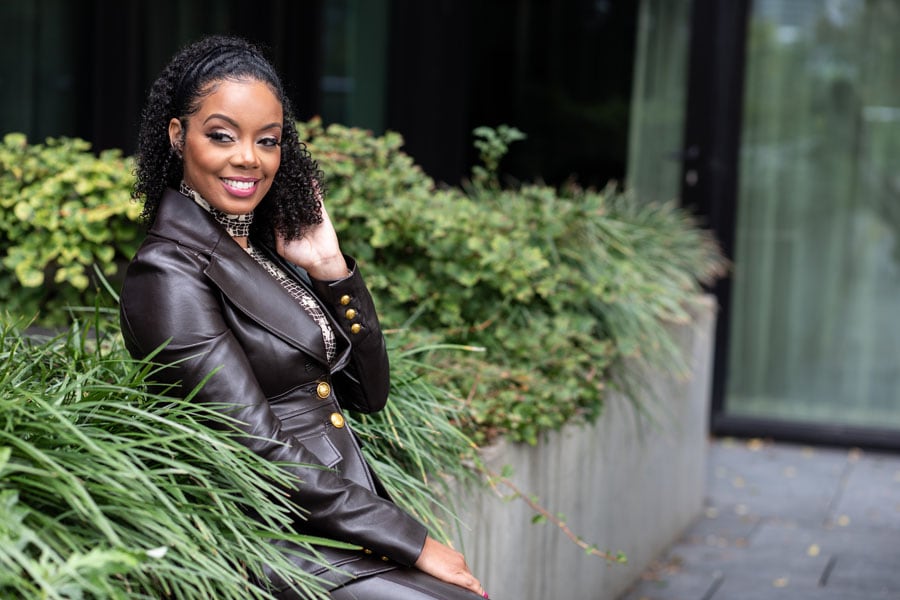
Meet the black women making waves in hair care
Black-owned hair care companies are growing, increasing their market share to $2.5 billion in 2021, spawning waves of Black female hair care enthusiasts with business acumen
 Monique Rodriguez, founder and Chief executive of Mielle Organics, in Brooklyn, Oct. 27, 2021. Black-owned hair care companies are growing, increasing their market share to $2.5 billion in 2021, according to Mintel, a market intelligence and research agency, spawning waves of Black, female hair-care enthusiasts with business acumen. (Jackie Molloy/The New York Times)
Monique Rodriguez, founder and Chief executive of Mielle Organics, in Brooklyn, Oct. 27, 2021. Black-owned hair care companies are growing, increasing their market share to $2.5 billion in 2021, according to Mintel, a market intelligence and research agency, spawning waves of Black, female hair-care enthusiasts with business acumen. (Jackie Molloy/The New York Times)
For more than a decade, Whitney White, aka @naptural85, has posted hair tutorials on YouTube for Black women with natural, coily hair like hers. A self-described natural-hair OG, White, 35, mastered the art of the wash and go (the signature, curl-defining look for “naturalistas”), the pineapple (a way to gather hair at the crown to maintain hairstyles for sleeping) and the twist-out (a twisted, dried, then untwisted hairdo). She also taught viewers how to create nourishing shampoos, deep conditioners and hair masks for optimal hair health and growth.
Eventually many of her more than 2 million followers encouraged her to produce her own line of hair products. Now, as the co-founder of Melanin Haircare, she joins the ranks of Black female-owned companies that sell products catering to the needs of Black hair.
“I am a Black woman, so I know what we want,” White said. “It’s kind of our FUBU moment.”
The global hair care industry, worth an estimated $77.15 billion, is projected to reach $112.97 billion by 2028, according to Fortune Business Insights. Black-owned hair care companies are growing, increasing their market share to $2.5 billion in 2021, spawning waves of Black female hair care enthusiasts with business acumen.
Recognizing the industry’s considerable size, Monique Rodriguez thought that with her ingenuity she might have success in an industry dominated by people who don't look like her.
©2019 New York Times News Service







